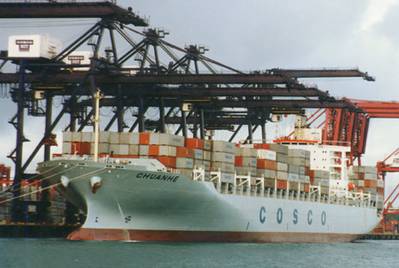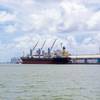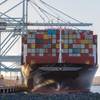The restructuring of the ocean carrier alliance system, triggered by merger and acquisition activities by shipping companies, is a logical business development, but if not carefully monitored and regulated, could also represent a move toward reduced services for shippers, said Mario Cordero, Chairman of the Federal Maritime Commission (FMC).
Cordero articulated this concern during remarks he made at the 2016 International Trade Symposium hosted by the Virginia Maritime Association in Norfolk. Cordero participated on a panel entitled Ocean Carrier Mergers & Acquisitions.
“At the end of the day, alliances are supposed to benefit the shipper by providing increased choices, increased competition and increased efficiencies. With the number of ocean carriers decreasing through merger and acquisition activity, and alliances restructuring themselves into larger entities, it is not unreasonable to ask, ‘Is the shipper really going to benefit?’” Cordero said. “Over the past several weeks, I have heard a lot of very positive sounding commitments from carriers about how new alliance structures are going to increase efficiencies, reduce congestion, help address environmental concerns, and most importantly, lead to even more choices for the shipping public. It is going to take careful, diligent and aggressive oversight to make certain the changes that are taking place among container carriers do not harm the American shipper.”
Last month’s announcement unveiling the new
OCEAN Alliance has prompted questions about a larger reordering of the alliance system. The OCEAN Alliance pulls its membership from three existing alliances and as such, the emerging belief is that other new carrier agreements will need to be formed. Cordero has said he is not opposed to new alliances in concept, but he believes they must actually be beneficial to international trade and the American consumer and not result in anticompetitive practices.
“We have an existing benchmark for performance across a number of different factors, and that is current carrier performance. As these new alliances begin to take form and potentially go into operation next year, the Commission will focus on whether the lines are exceeding past results, especially in terms of reliability, shipper satisfaction, and the efficient flow of containers out of the terminal gate toward final destination,” Cordero said. “The very last messages I want to hear are from shippers telling me that their choices have been reduced and service diminished as a result of these new alliance structures, or that port congestion is increasing because cargo is now transiting fewer gateways. The Federal Maritime Commission will work diligently to protect and enhance the international, intermodal supply chain.”











